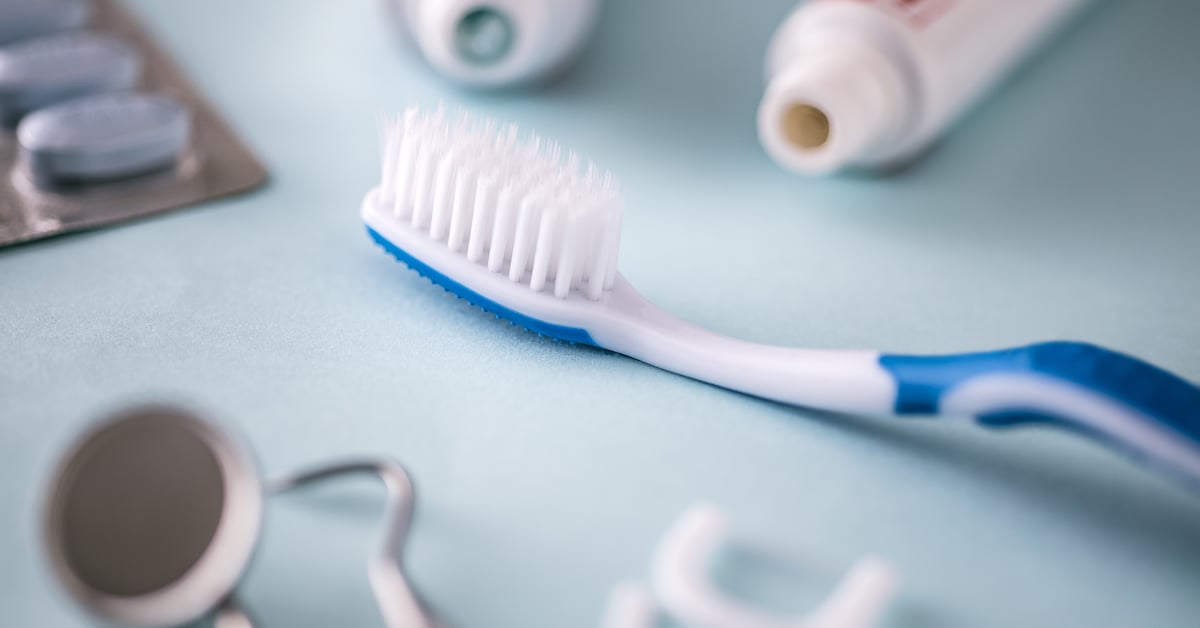Posted on: July 22, 2020
in Collingswood, NJ

Many people develop gingivitis at some point in their lives. Because the symptoms are subtle, you might never notice them. However, if your gums look swollen or they bleed easily, you could have gingivitis. The good news is that it is curable and you can prevent it from returning.
What Are the Indicators of Gingivitis?
Gingivitis is gum inflammation. You may notice your gums are:
- No longer pink, but are bright red instead
- Puffy and swollen
- Tender to the touch
- Bleeding easily
If your gingivitis already advanced to periodontal disease, you may notice:
- Bad breath
- Receding gums
- Painful chewing
- Loose teeth
- New spaces between teeth
How Does Gingivitis Develop?
Gingivitis is generally plaque-induced. It develops when plaque and tartar (hardened plaque) irritate the gums. The National Institutes of Health warns that plaque and tartar, a hard, yellowish substance located where the tooth meets the gum, produce toxins and bacteria. Tartar is porous, so it traps plaque. You can remove plaque by brushing, but only a dental professional can scrape off tartar.
Gingivitis isn’t destructive, but it can turn into periodontal disease, which is destructive. Periodontal disease will eventually lead to tooth loss if not treated as it destroys the ligaments, tissue and bone that hold teeth in place. Unfortunately, gingivitis and periodontal disease rarely causes pain so you won’t notice the damage if you don’t see a dentist regularly.
Gingivitis and periodontal disease are prevalent in the U.S. According to the CDC, half of all adults in the U.S. have periodontal disease and 70 percent of Americans age 65 and older have it. Those affected will have had gingivitis first.
Some people are more susceptible to gum disease. Risk factors that will increase your chance of developing gum disease:
- Chewing or smoking tobacco
- Hormonal changes
- Genetics
- Nutritional deficiencies
- Poor oral hygiene
- Dry mouth
- Broken fillings
- Crooked teeth
When a woman is pregnant, she may develop pregnancy gingivitis. Hormones will cause an increased blood flow to the gums and this type of gingivitis can get worse during the pregnancy.
How Is Gum Disease Associated with Conditions in the Rest of My Body?
There are several ways your oral health can affect your overall health. There is a relationship between gum disease and these medical conditions:
- Cardiovascular Disease: Researchers have found bacteria from gum disease in arterial plaque. Arterial plaque covers the walls of blood vessels, restricting blood flow. This can block arteries and cause a heart attack.
- Stroke: People with severe periodontal disease are at increased risk of having an ischemic stroke, according to the American Heart Association. An ischemic stroke is when an artery delivering oxygen-rich blood to the brain becomes blocked.
- Diabetes: According to the Mayo Clinic, people who have diabetes have a more challenging time regulating their blood sugar than diabetics with healthy gums.
- Preterm Birth: Gum disease is tied to preterm birth. According to research, unexplained preterm birth can sometimes be linked to a bacterial infection originating at the mouth.
- Respiratory Diseases: It is possible to inhale bacteria from periodontal disease into your lungs. This can lead to pneumonia or bronchitis or worsen these conditions if you already have them.
- Alzheimer’s Disease: People age 70 and over who have long-term gum disease are 70 percent more likely to have Alzheimer’s disease than those with healthy gums.
- ED: Studies have shown that men with periodontal disease have an increased risk for erectile dysfunction. Since the bacteria in gum disease is already linked to hardening of the arteries, it can cause ED as well.
- Dementia: Researchers found that specific oral bacteria present in gum disease were found in the brains of deceased individuals who had been diagnosed with dementia.
Gum disease can make any of these serious health conditions more likely to occur. We urge you to make an appointment today if you notice any of the gingivitis symptoms listed above. Our goal is for you to have good gum health, which can reduce your risk of developing these diseases.
What Is Gingivitis Treatment Like?
Gingivitis treatment typically consists of a professional teeth cleaning. Your dentist or dental hygienist will point out areas where your oral hygiene is lacking so you can take better care of your teeth and gums at home. Taking care of your teeth and seeing a dentist every six months for an exam and teeth cleaning should keep gingivitis away. In order to increase your chances of successful treatment, reduce your risk factors, such as quitting smoking or eating less sugar.
If your gingivitis has progressed to periodontitis, your dentist may recommend a deep cleaning. This procedure will eliminate plaque below the gumline. You’ll have a local anesthetic, so you won’t feel any pain. Your dentist may also prescribe medicated mouthwash or oral antibiotics.
In cases of severe periodontal disease, surgery may be necessary. Surgery can remove plaque below the gums and replace lost tissue and bone. There is no cure for periodontitis, but you and your dentist can control it and prevent further damage. An American Academy of Periodontology report estimates that up to 30 percent of adults have periodontal disease severe enough to cause tooth loss if they don’t receive treatment. Periodontal disease is responsible for more tooth loss in adults than any other oral health condition.
If you would like to visit our dentist for a gingivitis exam, please contact us today. You can get a definite diagnosis and receive treatment so the disease will not advance to periodontitis.
